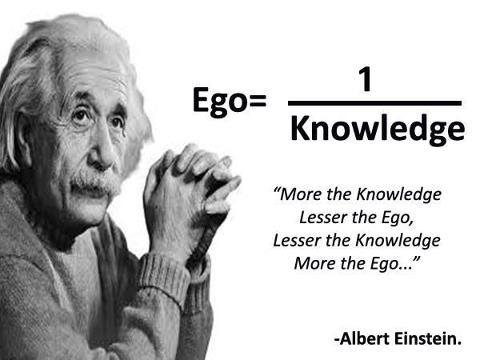Now that you have completed your degree or post-graduation, you are on the lookout for a job.
Listening to your seniors or your friends who have attended, you would be having fear of how to get about this ‘interview’ session.
Lots of articles and books are preparing individuals for ‘attending’ interviews. So what exactly are they looking out for?
You have to prepare yourself mentally for the face to face session. Imagine yourself in their shoes and think about what you would be expecting. This will help you to understand about the employer expectations of employees.
Employer Expectations Definition:
Employer expectations are the things that they expect from their employees like better skills, good work performance, effective strategies, practical ideas which finally can help the organization to grow and prosper.
Top 10 Employer Expectations:
The idea of an employer is always to gain more profit with lesser investment. And the best way to make it possible is to give importance and treat their employees well.
Employees act as an important part in the growth of the organization. That is the reason why most of the successful companies always encourage employee engagement. They provide their employees with extra perks, benefits, and opportunities to grow and learn. With all such facilities, the employee would feel important and works even hard and better for organizational success.
This is a win-win solution for both the employer and the employee, thus helping their business grow. Here is a list of work values employers Look for in employees
Top Qualities Employers Look For:
- Loyalty
- Professionalism
- Self-confidence
- Motivation to improve and develop
- Inspirational
- Integrity and honesty
- Adaptability
- Having a positive attitude
- Responsibility and dependability
- Good work ethics
Listed below are 30 aspects of what do employers want to hear in an interview from you.
Employer Expectations of Employees in an Interview:
1. Are you competent enough:
This is the foremost challenging aspect that is being reviewed before starting of the interview. The competency factors are based on the educational skills acquired during childhood and teenage period.
Moreover, try to understand the job descriptions of the interview that you are going to attend. It would be easier to handle interview with little knowledge.
2. Are you intelligent enough:
Intelligence is not about scores in your academics. It’s about how you would be able to handle a day to day challenge using your common sense. This becomes evident when you ask questions out of curiosity and listen to the answers.
3. Do you understand what has been asked:
Once a problem or question is posed, the employer will try to examine if the candidate had understood what has been asked for.
Do not beat around the bush. If the question is not clear then request for re-phrasing so as to get a clear picture.
4. Can you communicate:
Question is posed and you have understood what has been asked. Then you take time to think about the answer and communicate.
Even if the answer is not up to the mark, try your best to answer in simple words and don’t use jargon. It’s a way for them to know how you would answer your colleagues or your boss.
5. Are you a good listener:
Sometimes, the employer would make a small introduction or have a small discussion about certain aspects related to current matters or to generic topics before the question has been posed. This is just to test your listening skills and absorbing capacity in general.
6. Are you good observer:
 There are instances where questions would involve conducting a test using objects instead of normal face to face question. This is to check how much do you observe.
There are instances where questions would involve conducting a test using objects instead of normal face to face question. This is to check how much do you observe.
7. Are you a team player:
This is an aspect that is being verified at the onset of the interview. From the various assignments, projects, workshops, symposiums etc. that you had taken up during your college studies or previous work assignments or projects should be explained to them to highlight what important factors did you handle.
8. Whether you would complete on time:
Some of the tasks or job requires to be completed on specific time and you must be sure of your time management skills to complete a task. This is where the employer would be testing for your speed and accuracy in completing a job.
It could be typing a letter or just data entry of the contents already given to you.
Even if you haven’t gone for typing class make an effort to complete the task within the allotted time. This would only show your eagerness to keep up to the deadlines given and of course shows your commitment to work.
9. Do you have proper oral and written communications skills:
This is also one of the key criteria that employer would be looking out for. Probably they would pose a question as to explain about yourself or to talk about your previous work experience.
In such a case, you must be able to talk fluently in proper language without grammatical errors. You can avoid using words that are too difficult to interpret. Using simple English is always the best option.
Practicing with your friends, family or in front of the mirror would help you to face and get rid of the fear factor.
10. Do you have self-confidence:
From the answers you give to the questions posed, they must be able to judge your level of confidence and your integrity.
It’s best to describe about your accomplishments with whole heart which can be visualized in your expressions or on your face. Your body language and ways of expression will surely indicate your confidence level.
11. Whether you are open to learning:
Instances are there where the employer would have put up a question and from the answers given from your side it would be evaluated whether you are a learner as well.
12. Are you adjustable:
Most of the job requires you to make adjustments to the circumstances or environment around you.
This would be deciphered while they enquire you, for example – whether you would be willing to take up a particular task for a small period of time or would you prefer to come at so and so time.
Not always will such a question be posed but it is to just verify if you would make small adjustments
13. Are you adaptable:
This factor of adaptability is not only for person who is attending interview it applies for anyone who is willing to move to another country or another place for job. He / She will need to know to adapt to the surrounding there.
14. Are you egoistic:
 You must be able to accept the mistakes highlighted and take it easy when pointed out by acceptance.
You must be able to accept the mistakes highlighted and take it easy when pointed out by acceptance.
Sometimes, it is observed that the candidate does not agree to the comments or retorts with remark back to protect their self-esteem. Such a behavior will only show your egoistic nature.
15. Can you perform through obstacles:
Interviewers sometimes put forth a question as to see whether you would perform a specific task in absence of the required resource which can be human, material, finance etc.
Obstacles can be in the form of challenges which can be of any form like you have to be away from home or not be able to come home frequently, etc.
You will need to know or prepare yourself to answer such queries. If you have faced such situation then you could explain it and make them to know about your capability.
16. Are you loyal:
You could be faced with an awkward question of previous employer. This is to test your loyalty towards the company.
Make sure that you do not give negative or degrading remarks about the employer or the person whom you worked with. By doing so you will earn trust from the employer who is interviewing.
17. Are you committed:
Commitment is nothing but the eagerness to prove and work even if takes to go that extra hour. You would have seen a lot of such commitments during your academic
Studies and give examples of projects that you had handled.
18. Are you courageous:
If given an opportunity to work out a problem or calculation, try your best to put in your efforts to solve the problem.
In case you are not able to get it, then you should have the courage to admit that you do not know how to solve it. This will show that you are courageous and willing to learn from them.
19. Are result focused:
Most of the employers would be looking out for employees who deliver results. Based on the type of job that you are going to be interviewed about, be clear on what you would be delivering at the end of the day.
20. Do you correct yourself:
 Sometimes you may come across a situation wherein no matter how many times you would have done the job, there is liability that mistakes happen.
Sometimes you may come across a situation wherein no matter how many times you would have done the job, there is liability that mistakes happen.
If you do happen to experience in your interview which you have not noticed and the employer points out, then make the correction immediately.
Do not be obstinate and shuffle up or ignore the remarks of the employer. This will only create an impression that you are having pride and not willing to learn new assignments if any.
21. Do you have the right behaviour patterns:
Certain jobs has the requirement to face large number of customers a day while certain will involve you to be with your PC. In the first case, like being a receptionist you would need to be polite, courteous, and smiling.
While in the latter case, a desktop support technician, you would need to be patient and ready to serve whatever be the queries.
Whatever be the job interview that you intend to attend, prepare yourself beforehand to answer them.
22. Are you trustworthy:
Some interviewers are interested to know whether they can rely on you for keeping confidentiality.
Suppose for example you are faced with a question like “do you know how to solve ..…..in the laptop?” What would be your answer?
Sometimes you would be eager to show off your expertise in using the computers and eventually you would say “Yes”.
It would only lead to another question following that as ”Alright, can you tell how you solve this issue where……..”. Then you realize that you are not sure about some of the issues. Hence, it is better to answer truly in the beginning and become trustworthy.
23. Can you align yourself with co-workers:
Many employees are expected to align themselves with their counterparts and there are group discussions to verify this aspect.
24. Do you listen to instructions:
Listen to instructions means being able to take in commands from boss and execute as per their wish.
This may not be the case often, but whatever be the situation of doing your work we are sometimes obliged to take in instructions as the work demands it.
25. Will you stick around:
A very interesting point to note is the fact about your previous work experience(s). Most of the employers usually look through your previous work experiences to know about your credibility and how long your tenure.
Sometimes, if the period is less than a year then they would be interested to know what made you to leave.
As said ‘job-hopping’ is not very good sign which employers will look for. But in case you were so, then assure your employer of your tenure.
26. Can you lead a team if given an opportunity:
 Employers are always on lookout for ‘born leaders’. It’s better to be prepared to have information on your team activities that you have worked out with and explain projects handled with details of the team members.
Employers are always on lookout for ‘born leaders’. It’s better to be prepared to have information on your team activities that you have worked out with and explain projects handled with details of the team members.
Don’t forget to mention the list of activities that you had delegated and how did you carry out. This will create an impression of you being able to handle a team and take the lead for it.
27. Do you have perseverance:
Generally, an interview does not mean it’s a question-answer session. It’s an arena where an atmosphere is created for the employer to get persons to perform tasks that is required for the growth of the organization.
Hence, during that session, you need to be calm, cool and be relaxed. It demonstrates your inner strength and indicates your perseverance during times of inevitable crisis. It is a sum total of your positive qualities.
28. Are you easy-going:
You will need to make an impression that you are a person who can be approached easily.
Conversations or discussions during interviews is a platform wherein such characteristics will be observed and it creates an impression that you would handle some specific tasks if assigned.
29. How is your composure:
From the way you answer and method of a handshake or the way you sit, the interviewer will assess your personality and your self-confidence. Keeping your hands crossed while sitting will show that you are keeping to yourself while sitting with your leg over leg will show your pride.
Biting nails, squeezing your palms, cleaning your sweat over nose and forehead are signs of showing you are tensed and not confident about yourself.
Hence, try to keep a cool composure and feel that you are only facing an interview not a do or die situation.
30. Are you reliable:
This is inevitably the foremost characteristic that any employer will be interested in. By simple comparison between the information you had filled up in the form and your interview session will prove about how true you are.
To conclude attending interview is not just a namesake process. Its process wherein employer and future employees meet and selection process is based on set of questions that is formatted for a particular job profile.
Some human resources consider it as a learnings process for them to improve in the next sitting. It helps to select better candidates and not waste time, resources and funds.
Conclusion:
Hence, prepare yourself better by having a look at the above points and rehearse in your mind about the anticipated questions and you sure will come out with flying colours.
Take a positive approach towards employer expectations and look forward with a positive mind. Visualize yourself coming out of the interview hall with smiling face and having got through.
As they say visualizing your thoughts will make it happen. This will make your day a wonderful day










































